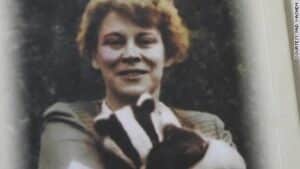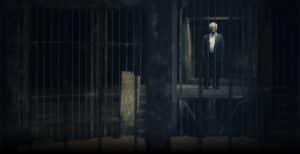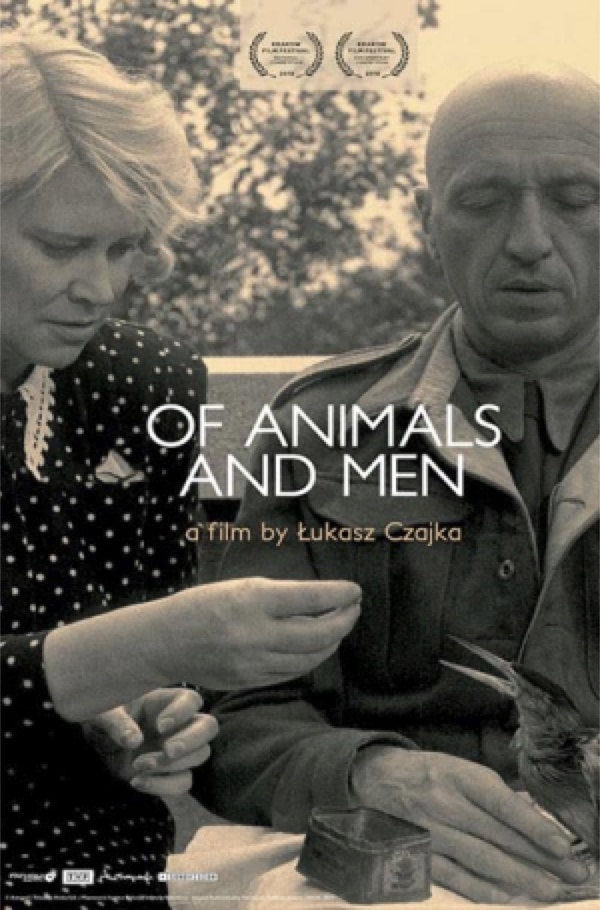Back in 2017, The Zookeeper’s Wife, starring Jessica Chastain, came to theaters telling an inspiring true story about Jan (pronounced Yahn) Zabinski, and his wife Antonina. Jan was a zoologist and together they directed the Warsaw Zoo before and during World War II. They used their own personal villa and the zoo’s animal enclosures to hide Jews during the Nazi occupation of Warsaw.
On June 22nd, for one night only, Fathom Events is showing Of Animals and Men, a new documentary about the Zabinski family and their exploits before and during the war. Directed by Warsaw native and frequent childhood visitor to the still-functioning zoo, Lukasz Czajka, the film captures the lives of these extraordinary people through the words of Antonina herself, archival footage, re-enactments, and interviews with survivors who benefited from the Zabinski’s generosity and love.
The 70-minute film situates the Zabinski’s as the caretakers of the Warsaw Zoo in the 1930’s even while the zoo was still under construction. Using narration from Antonina’s memoirs, we discover her love of the animals and the joy she and her husband found in caring for them, even to the point of sometimes keeping the sick animals in their own home. Jan’s educational radio programs were well known in Poland.
On September 1, 1939, the first air raids struck the city of Warsaw, including the zoo. Several animals were killed. Other enclosures were damaged and the animals began roaming the streets. Smaller animals scurried away. When the occupying force cut off financial aid to Polish institutions, the citizens brought food and supplies to feed the remaining animals.
Then, the Nazis relocated all the animals to German zoos and when they couldn’t, the SS hosted hunting events at the zoo. Antonina tried to hide this from her young son by reading loudly to him to distract him from the noises of the party.

Jan, appointed by the Nazis as the superintendent of public parks, was given access to the Warsaw Ghetto, where the Jewish people of the city had been relocated. During the next three years, Jan smuggled people out of the ghetto and temporarily hid them in his villa and in the empty animal enclosures until it was safe for them to continue their journey. When German officers would come to the house, Antonina would play a certain song on the piano as a signal for their “guests” to be quiet. A different signal song would indicate that it was safe to move around.
The Zabinski’s young son, Ryszard, took it upon himself to distribute food and blankets to their houseguests. His joyous spirit uplifted the spirits of the distraught Jews he encountered. For their efforts, the Zabinski’s received the “Righteous Among the Nations” award in 1965 from Yad Vashem of Jerusalem.
Of Animals and Men brings this story to life through excellent voice-over narration directly from Antonina’s diaries and interviews with the couple’s youngest daughter, Teresa, born during the war. She talks with pride of her parents and their heroism and tells the stories she learned growing up in the zoo and from her parents and older brother. Teresa passed away in January, 2021 at age 77. Ryszard died in 2019.
Also interviewed is Moshe Tirosh, a Jewish survivor who was sheltered in the zoo by the Zabinski’s. He tells of how he knew when he first saw Antonina that she was a good person who would do anything to help he and his fellow Jews. Both his testimony and that of Teresa provide powerful first-hand witness to the suffering of the time and the courage showed by Jan and Antonina and their family.

During a recent screening of Of Animals and Men, Dominik Zawadzki, Teresa’s son and grandson of the Zabinski’s, was asked what he hopes his grandparent’s story will inspire in people. He reflected that we need to see the power of our individual choices and how much good we can do for others when we choose to do so. He also mentioned that, perhaps, much of his grandparent’s courage came from their Catholic faith. He noted that Antonina never left home without a cherished sacramental on her person.
Director Lukasz Czajka mentioned that he hopes the film will touch people’s hearts, “because in the heart change begins.”
Stories like the Zabinski’s, inspire the best in humanity and can spur us to work harder for those who cannot help themselves. When asked what his grandfather would say to us today, he said, “Jan would want people to do what’s right.” Let’s pick up Jan’s attitude and do what’s right, even, or especially, when it is hard to do so.



